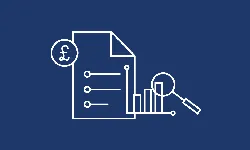
The Econometrics of Time Series Data 
This course will provide you with the knowledge and skills to understand and apply econometric models to time series data. You will learn about stationary and non-stationary models, and how to test for non-stationarity. You will also explore the applications of time series models, forecasting exercises, and models for changing volatility. With the help of real financial market data, you will be able to estimate and interpret the empirical autocorrelation function, cointegration equations, and ARCH(p) and GARCH(p,q) models. By the end of this course, you will be able to confidently manipulate and plot data, and perform in-sample and out-of-sample forecasting exercises. ▼
ADVERTISEMENT
Course Feature
![]() Cost:
Cost:
Free
![]() Provider:
Provider:
Coursera
![]() Certificate:
Certificate:
Paid Certification
![]() Language:
Language:
English
![]() Start Date:
Start Date:
29th May, 2023
Course Overview
❗The content presented here is sourced directly from Coursera platform. For comprehensive course details, including enrollment information, simply click on the 'Go to class' link on our website.
Updated in [August 31st, 2023]
Skills and Knowledge:
– Estimate and interpret GARCH(p,q) models for volatility
Professional Growth:
This course on The Econometrics of Time Series Data contributes to professional growth in several ways:
1. Enhanced data analysis skills: By completing this course, professionals will gain a deeper understanding of time series data and the models and approaches used to analyze it. They will learn how to manipulate and plot different types of data, estimate and interpret the empirical autocorrelation function, and estimate and compare models for stationary series. These skills are valuable in various industries where time series data is commonly encountered, such as finance, economics, and marketing.
2. Improved forecasting abilities: The course covers the concept of forecasting using econometric models. Professionals will learn how to perform in-sample and out-of-sample forecasting exercises, allowing them to make more accurate predictions about future trends and outcomes. This skill is particularly valuable for professionals involved in financial planning, budgeting, and strategic decision-making.
3. Understanding non-stationarity and volatility: The course explores the problems that may occur with non-stationary data and models for volatility forecasting. Professionals will learn how to test for non-stationarity of time series data, estimate and interpret cointegration equations, and estimate and compare models for changing volatility. This knowledge is crucial for professionals working in fields where understanding and managing volatility is important, such as risk management and asset pricing.
4. Application of econometric models: The course discusses the applications of time series models in modeling GDP growth and testing for the Purchasing Power Parity Hypothesis. Professionals will gain practical knowledge on how to apply these models to real-world economic data, enabling them to make informed decisions and recommendations based on empirical evidence.
Overall, this course equips professionals with advanced econometric skills and knowledge related to time series data analysis, forecasting, non-stationarity, and volatility. These skills are highly valued in many industries and can contribute to professional growth and career advancement.
Further Education:
This course on the Econometrics of Time Series Data is suitable for preparing for further education. It covers various models and approaches for analyzing time series data, which is a common type of data in many fields of study. The course discusses the characteristics of time series data, different types of time series models, forecasting techniques, and models for volatility. It also builds upon previous courses in the Specialisation, providing a comprehensive understanding of econometric concepts and techniques. By completing this course, students will gain the necessary skills to manipulate and analyze time series data, estimate models, interpret results, and perform forecasting exercises. These skills are valuable for further education in fields such as economics, finance, statistics, and data analysis.
Course Provider

Provider Coursera's Stats at AZClass
Discussion and Reviews
0.0 (Based on 0 reviews)
Explore Similar Online Courses

The Art of Effective Communication

ES6 - JavaScript Improved

Python for Informatics: Exploring Information

Social Network Analysis

Introduction to Systematic Review and Meta-Analysis

The Analytics Edge

DCO042 - Python For Informatics

Causal Diagrams: Draw Your Assumptions Before Your Conclusions

Whole genome sequencing of bacterial genomes - tools and applications

Exploratory Time Series Analysis

Advanced SQL for Data Science: Time Series


Start your review of The Econometrics of Time Series Data